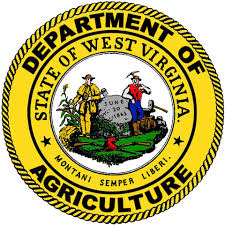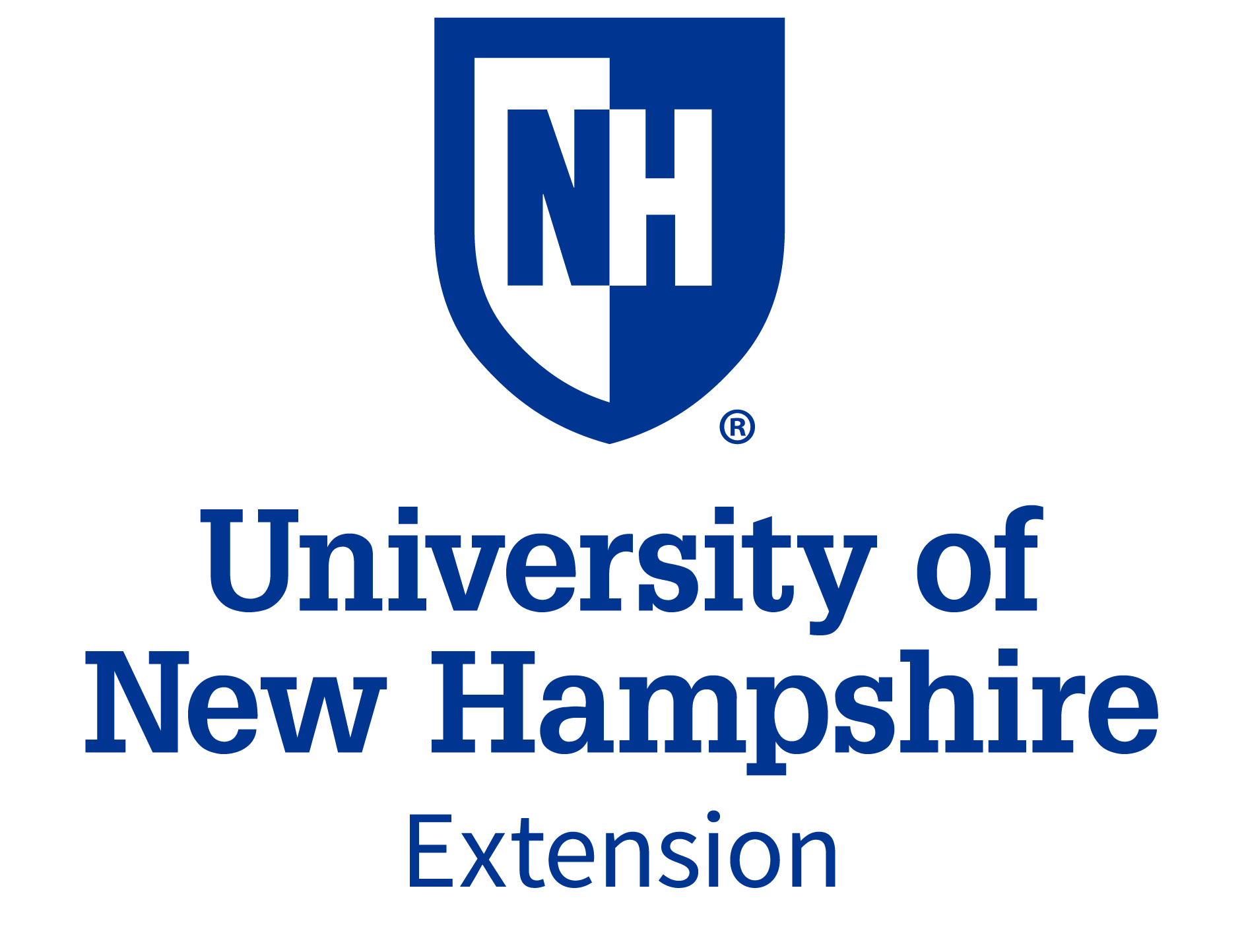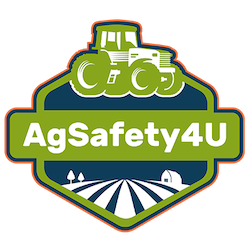Extension Foundation Online Campus
Search results: 241
This course provides strategies for school meal program leaders to identify and implement healthy initiatives, find funding to support those initiatives, and measure and communicate successes to students and other stakeholders in the community.
This course has three sections and will take about one hour to complete. For each section you will be asked to read a short introduction and watch the corresponding video (approximately 20 minutes). Once you've have completed the video, you must correctly answer a comprehension question to move on to the next section.
Upon adequate completion of the three sections, please fill out the brief questionnaire to receive your certificate of completion. If you are a member of the School Nutrition Association you may earn one Continuing Education Credit by completing the course. In the final questionnaire, please indicate your SNA membership number and the certificate will be emailed to you. You may also use this course towards USDA's School Meal Professional Standards requirements.
For more information about the course please contact Katie at healthy_food_choices_in_schools@cornell.edu
- Teacher: Bhoomika Jain
- Teacher: Katie Kuhl

This course also meets the requirements for production and financial management training for FSA loan recipients who attend the In-person workshops in 2022. In order to qualify for a certificate, all sessions must be completed.
Contact Keri Hayes, MSU at 406-994-3511 or email: khayes@montana.edu if you are having technical difficulties or have questions.
- Teacher: Keri Hayes
- Teacher: George Haynes
Confused about how to deal with lead-based paint?
"12 Steps to Lead Paint Work Safety" is a self directed, video course for extension paint contractors. Participants will learn the steps that the U.S. Environmental Protection Agency requires in the Renovation, Repair and Paint Rule (RRP), to ensure any renovation dealing with lead paint is done safely on homes and child-occupied buildings built before 1978. It covers the basics of Lead-Safe Weatherization Minimum Standards and the EPA Renovation, Repair and Paint Rule (RRP) and goes through a typical lead-safe job from start to finish. The video discusses similarities and differences of the RRP Rule and the U.S. Department of Weatherization’s Lead Safe Weatherization standards. You may view it at no charge, but to test and obtain a certificate of completion, there is a $30 fee. This pass key may be purchased at MSU Extension's online store at http://msuextension.org/store by selecting item #7008. Click Here for a direct link. For more information contact Mike Vogel at mvogel@montana.edu or (406) 994-3451. For assistance with enrollment or purchasing, contact Millie Veltkamp at mvogel@montana.edu
- Teacher: Millie Veltkamp
Transportation workers and others who need to flag traffic on public and private roadways in Nebraska who take this course will be able to successfully complete the required tasks of a flagger: Guide traffic through work areas; Protect workers; Prevent unreasonable delays for road users; and Answer motorists’ questions politely and knowledgeably.
This course is only open to those who need to retrieve a completion certificate or complete a course in-progress prior to March 26, 2018. For new certifications, use the 2018 NDOT Flagger Certification Course.
For information contact: Megan Patent-Nygren, University of Nebraska-Lincoln, Local Technical Assistance Program, mpatentnygren2@unl.edu
- Teacher: Megan Patent-Nygren
This course has been replaced. Please visit the new course site to register and complete the course.
Transportation workers and others who need to flag traffic on public and private roadways in Nebraska who take this course will be able to successfully complete the required tasks of a flagger: Guide traffic through work areas; Protect workers; Prevent unreasonable delays for road users; and Answer motorists’ questions politely and knowledgeably.
This course is for all new certification enrollees after March 26, 2018. To access a certificate earned or finish a course begun prior to that date, visit the prior version of the course.
For information or to enroll in the 2018 course contact: Megan Patent-Nygren, University of Nebraska-Lincoln, Local Technical Assistance Program, mpatentnygren2@unl.edu
- Teacher: Megan Patent-Nygren
The Senior Farmers Market Nutrition Program provides fresh, unprocessed fruits, vegetables, and herbs to eligible participants. Eligible Participants include seniors over 60 years old who are at/under 185% of the federal poverty line. The West Virginia Department of Agriculture (WVDA) authorizes farmers, farmers markets, farm stands, and local farmer cooperatives to accept SFMNP benefits in exchange for locally grown, unprocessed fresh fruits and vegetables in counties where SFMNP is operating. Eligible participants take their benefits to authorized farmers, farmers markets, farm stands, or local farmer cooperatives and redeem them for produce.
This is a required training for WV Farmer's Market Vendors and Markets to accept these benefits. You MUST complete sections 1 and 3 and the quiz in order to earn your completion certificate. You must have your certificate by May 15th.
This course should take no longer than 1 hour to complete and may be completed in multiple sessions.

- Teacher: Maggie Blankenship
- Teacher: Leslie Boggess
- Teacher: Karen Cox
This self-directed course, composed of 8 modules, is designed for frontline 4-H Youth Development Staff interested in learning how multiple forms of data (4-H Common Measures data and Lesson Study data) can be used to help make decisions in regards to program improvement and professional development opportunities.
Through the learning modules, you gain the knowledge to effectively leverage Common Measure 2.0 to get the youth-generated data you need to assess a program and make it even better. You’ll have the data to better understand how and what youth are learning in each of the major 4-H areas of emphasis. And you’ll learn how to use these tools and the data to make meaningful decisions about your local programs. You’ll also learn how Lesson Study can help take the guesswork out of professional development and program improvement. It’s all about becoming an even more effective leader, educator and mentor for young people. And that leads to even greater confidence, satisfaction and passion as you work with youth.
Through a deeper dive into 4-H Common Measures and Lesson Study, participants will have an increased understanding of basic program evaluation practices, will learn how to successfully access and implement 4-H Common Measures and Lesson Study, and ultimately will understand how when paired together result in making data-driven decisions.
For more information or to enroll please contact: Jessica Mullendore at jmullendore@unl.edu
- Instructors: Makayla Burg
- Instructors: Jill Lingard
- Instructors: Seth Teager
For more information or to enroll contact Rachel Maccini, Pesticide Safety Education Program Coordinator, University of New Hampshire.

- Teacher: Faye Cragin
- Teacher: Rachel Maccini
- Teacher: Peg Shuffstall
Pesticide product labeling is the
main method of communication between a pesticide manufacturer and pesticide
users. The information printed on or attached to the pesticide container is the
label. Labeling includes the label plus all other information you
receive from the manufacturer about the product when you buy it.
Credits for this course are currently available for New Hampshire, Maine, Vermont, Massachusetts, Connecticut, Rhode Island and Pennsylvania.
For more information or to enroll please contact Rachel Maccini, Pesticide Safety Education Program Coordinator, University of New Hampshire.
The fee for this course is $40. To purchase and enroll in it, select the following button:

- Teacher: Faye Cragin
- Teacher: Rachel Maccini
This course is designed to remind applicators to the severity of pesticide poisoning and how this poisoning depends on the pesticide's chemical makeup and formulation, its path into the body, the amount that enters the body, and the length of exposure. Wearing PPE can greatly reduce the potential for dermal, inhalation, eye, and oral exposure, and thereby significantly reducing the chances of a pesticide poisoning, but it does not necessarily eliminate it.
Credits for this course are currently available for New Hampshire, Maine, Vermont, Massachusetts, Connecticut, Rhode Island and Pennsylvania.

- Teacher: Faye Cragin
- Teacher: Rachel Maccini
This class will help guide you in identifying dangerous situations, taking preventative measures to minimize risks, and responding appropriately when an accident occurs. Preparation is key to safeguarding yourself and your employees.
Credits for this course are currently available for New Hampshire, Maine, Vermont, Massachusetts, Connecticut, Rhode Island and Pennsylvania.
The fee for this course is $40. To purchase and enroll in the course, select the following button:

- Teacher: Faye Cragin
- Teacher: Rachel Maccini
Proper disposal of pesticides and pesticide containers is an important phase of pest management an improperly disposed product can be hazardous to people and the environment. READ THE PRODUCT LABEL for specific disposal information.
Credits for this course are currently available for New Hampshire, Maine, Vermont, Massachusetts, Connecticut, Rhode Island and Pennsylvania.
The fee for this course is $40. To purchase and enroll in the course, click the button below:

- Teacher: Faye Cragin
- Teacher: Rachel Maccini
Credits for this course are currently available for New Hampshire, Maine, Vermont, Massachusetts, Connecticut, Rhode Island and Pennsylvania.

- Teacher: Faye Cragin
- Teacher: Rachel Maccini
Pesticide Applicator recertification credits for a variety of subjects including backpack sprayers and the label.
Credits for this course are currently available for New Hampshire, Maine, Vermont, Massachusetts, Connecticut, Rhode Island and Pennsylvania.
For more information or to enroll please contact Rachel Maccini, Pesticide Safety Education Program Coordinator, University of New Hampshire.

- Teacher: Faye Cragin
- Teacher: Rachel Maccini
By taking this course, students will learn:
The Worker Protection Standard (WPS) is a regulation developed by the United States Environmental Protection Agency (EPA) to protect workers and handlers from the harmful effects of pesticides and their residues. The standard went through some major
revisions in 2015 and this course will reflect those changes.
This course will cover some of the major points of the Worker Protection Standard and what employers need to cover with their employees in order to comply.
Once you've completed this course, you should be able to:
- Define a worker and a handler
- Understand the importance of the WPS
- Know when compliance is necessary
- Identify the basic requirements needed by both a worker and handler to reduce their pesticide exposure
Watch the presentation from beginning to end. There are review questions interspersed to help you review the information. When you feel you are comfortable with the information, take the final assessment below Jeopardy game.
For more information please contact Rachel Maccini, Pesticide Safety Education Program Coordinator, University of New Hampshire, Cooperative Extension.
The fee for the course is $40. To purchase and enroll in the course, click the following button:

- Teacher: Faye Cragin
- Teacher: Rachel Maccini
AgSafety4u – Level 1 provides an overview of identification and control of hazards common to farms and agriculturally related rural businesses, focusing on hazards associated with machinery, structures, equipment, animals, chemicals and outdoor environment. Learning objectives for Agricultural Employees, Employers and other rural workers who take the course are to a) Describe principles of hazard identification and control and b) Recognize hazards found on farms and in agriculturally related rural businesses.
Additional information about the course can be found at https://ag-safety.extension.org/agsafety4u-certificate-course/
This course is no longer accepting registrations. Please see https://catalog.extension.org/product?catalog=AgSafety4u for the most recent version of this course.For additional information, contact Aaron M. Yoder (aaron.yoder@unmc.edu).
- Teacher: Deana Namuth-Covert
- Teacher: Aaron Yoder
AgSafety4u 2.0 provides an overview of identification and control of hazards common to farms and agriculturally related rural businesses, focusing on hazards associated with machinery, structures, equipment, animals, chemicals and outdoor environment. Learning objectives for Agricultural Employees, Employers and other rural workers who take the course are to a) Describe principles of hazard identification and control and b) Recognize hazards found on farms and in agriculturally related rural businesses.
Additional information about the course can be found at https://ag-safety.extension.org/agsafety4u-certificate-course/
Course Fee: $10. Click here to purchase and enroll in this course:
For additional information, contact Aaron M. Yoder (aaron.yoder@unmc.edu).

- Teacher: Deana Namuth-Covert
- Teacher: Aaron Yoder
American Citizen Planner - Indiana Comprehensive Exam is an online exam and certificate course.
For more information contact Daniel Walker at walke422@purdue.edu.
This course is available for a fee of $200 as part of a bundle that includes ACP-Indiana 101, 201, and Comprehensive Exam. To purchase this bundle of courses, click the following button.
- Teacher: Daniel Earl Walker
American Citizen Planner National Exam is an online exam and certificate course.
For more information contact Kara Salazar (salazark@purdue.edu).
The fee for this exam is $50. To purchase access to the exam, click the following button:
- Teacher: Kara Salazar
- Content Specialists: Wayne Beyea
This course serves as a tool for small flock, backyard, homestead, and hobby poultry owners to become more informed on avian influenza (AI). You will learn how AI can affect you and your flocks, biosecurity measures that should be practiced to prevent disease and how to respond and recover in an event of an outbreak. Upon completion of this course you may take the final exam to receive your Avian Influenza Biosecurity Certificate. This course material may be reproduced free of charge for public use, however, it is not be be used for profit or financial gain.
Any questions about this course should be directed to Nathaniel Tablante at nlt@umd.edu
To learn more you may want to visit the eXetension Avian Influenza Homepage or the Avian Influenza Facebook Page
- Teacher: Nathaniel Tablante
Avian Influenza Biosecurity for Emergency Responders is a self-directed certification course designed for emergency response personnel. Participants will gain vital information on bio-security measures and emergency management procedures that are necessary to prevent, contain, and recover an avian influenza outbreak. For more information contact Nathaniel Tablante, University of Maryland at nlt@umd.edu.
- Teacher: Nathaniel Tablante
For more information about this course contact Nathaniel Tablante, University of Maryland at nlt@umd.edu.
- Teacher: Nathaniel Tablante
Knowing general information about horse welfare, behavior, nutrition, health and regulations is essential to keeping your horse happy and healthy. This learning module gives an overview of the care and management of horses, with information ranging from daily health checks to management & control of diseases and parasites.
For information contact Colleen Brady, at bradyc@purdue.edu.
The fee for this course is $10. To purchase and enroll in the course, click the following button:
If you purchase at least $40 worth of courses from this category, you can receive a 20% discount by entering the voucher code of HorseQuest20.
- Teacher: Kathy Anderson
- Teacher: Colleen Brady
Basic Radio 101 for North Dakota Emergency Responders is a self-directed course for paid and volunteer people who serve in EMS, law enforcement, firefighting and other first responder activities. Participants will learn how to use their radios appropriately, protocols to follow and how to troubleshoot common problems. For more information, contact Brenda Vossler, N.D. Department of Emergency Services training and exercise officer, at (701) 328-8106 or blvossler@nd.gov. For technical support, contact Becky Koch, (701) 231-7875 or becky.koch@ndsu.edu, with North Dakota State University Agriculture Communication.
- Teacher: Becky Koch
For more information contact Kathy Anderson, University of Nebraska, at kanderson1@unl.edu
The fee for this course is $10. To purchase and enroll in it, click the button below:
If you purchase at least $40 worth of courses from this category, you can receive a 20% discount by entering the voucher code of HorseQuest20.
- Teacher: Kathy Anderson
- Teacher: Colleen Brady
- Teacher: Steve Pritchard
- Teacher: Troy Walz
Beginning Horseman: 4-H Level 1 is a course for youth 8 to 18 years old
Youth will learn correct and safe handling and riding principles for the beginner horseman.
For more information contact: Lena Luck at University of Nebraska-Lincoln, email address at lena.luck@unl.edu
- Extension Horse Specialist: Lena Luck
This course explores how the principles of behavioral economics can increase selection and consumption of healthy foods in school meals though increasing taste expectations, managing portion size, and setting smart pricing strategies for a la carte items. It also covers how these strategies can be adapted in compliance with the USDA's Offer vs Serve provision.
This course has three sections and will take about one hour to complete. For each section you will be asked to read a short introduction and watch the corresponding video (approximately 20 minutes). Once you've have completed the video, you must correctly answer a comprehension question to move on to the next section.
Upon adequate completion of the three sections, please fill out the brief questionnaire to receive your certificate of completion. If you are a member of the School Nutrition Association you may earn one Continuing Education Credit by completing the course. In the final questionnaire, please indicate your SNA membership number and the certificate will be emailed to you. You may also use this course towards USDA's School Meal Professional Standards requirements.
For more information please contact: Katie at healthy_food_choices_in_schools@cornell.edu
- Teacher: Bhoomika Jain
- Teacher: Katie Kuhl
This course has three sections and will take about one hour to complete. For each section you will be asked to read a short introduction and watch the corresponding video (approximately 20 minutes). Once you've have completed the video, you must correctly answer a comprehension question to move on to the next section.
Upon adequate completion of the three sections, please fill out the brief questionnaire to receive your certificate of completion. If you are a member of the School Nutrition Association you may earn one Continuing Education Credit by completing the course. In the final questionnaire, please indicate your SNA membership number and the certificate will be emailed to you. You may also use this course towards USDA's School Meal Professional Standards requirements.u.
- Teacher: Bhoomika Jain
- Teacher: Katie Kuhl

